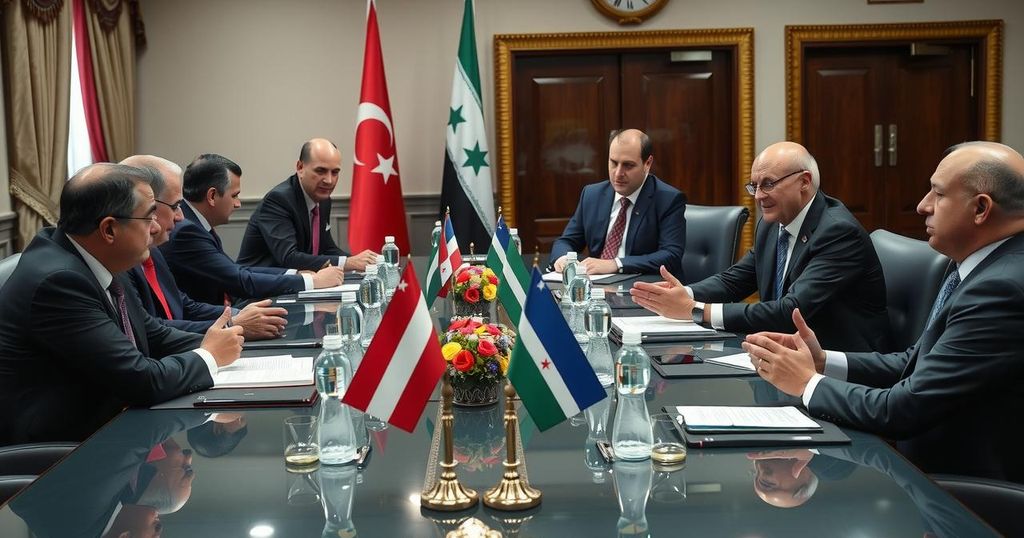Top diplomats from the U.S., Turkiye, the EU, and Arab nations held talks in Jordan concerning Syria’s future governance amid regional power dynamics. The U.S. seeks to establish inclusive political principles as Turkiye resumes its embassy operations in Damascus. Tensions remain due to conflicting interests regarding Kurdish militants and the fight against Daesh as diplomats aim to prevent sectarian divisions in Syria.
High-level diplomats from the United States, Turkiye, the European Union, and various Arab nations convened in Aqaba, Jordan, for discussions regarding Syria’s political future. This meeting follows a military advance by militant groups, notably Hayat Tahrir Al-Sham, which recently resulted in the capture of Damascus. Secretary of State Antony Blinken led the U.S. delegation, advocating for a political transition marked by minority rights and inclusivity.
Turkiye, a long-time supporter of opposition forces against President Bashar Assad, is anticipated to play a significant role in shaping Syria’s governance. Turkish Foreign Minister Hakan Fidan announced the resumption of operations at the Turkish embassy in Damascus, signaling a commitment to deeper engagement.
Despite the notable absence of Syrian representatives, other Arab foreign ministers joined Blinken and EU officials in dialogue focused on stabilizing Syria. Discussions also addressed the potential for sectarian divisions within the country, emphasizing the importance of a unified political framework. However, conflicting interests between the U.S. and Turkiye regarding Kurdish militants, particularly the Syrian Democratic Forces, pose a challenge to overarching alliances in the region.
In this multi-faceted geopolitical landscape, the U.S. continues to prioritize the fight against Daesh militants. Both Blinken and Fidan underscored the need to prevent a resurgence of Daesh, which remains a significant concern for regional stability.
The geopolitical situation in Syria remains complex following the civil war, which has seen various factions competing for control. The recent ascendancy of militant groups places pressure on global powers to influence the future governance of Syria and encourage a transition away from President Assad’s regime. Nations like Turkiye and the U.S. have vested interests in the outcome, particularly as they navigate relationships with local militia groups and the implications these have for regional security and governance.
In summary, the meeting in Aqaba represents a critical step for international diplomacy concerning Syria’s future. The presence of key global and regional players reflects a collective interest in fostering stability while navigating conflicting agendas, particularly around Kurdish forces and efforts to combat Daesh. The success of this initiative relies on continued dialogue and a commitment to an inclusive political approach that averts sectarian fragmentation.
Original Source: www.arabnews.com






